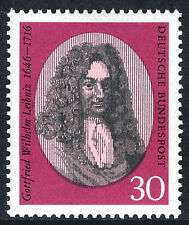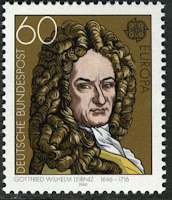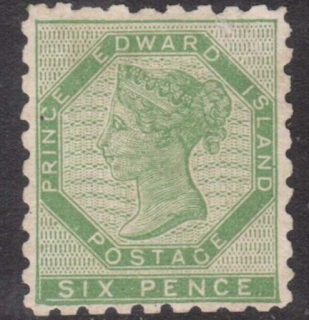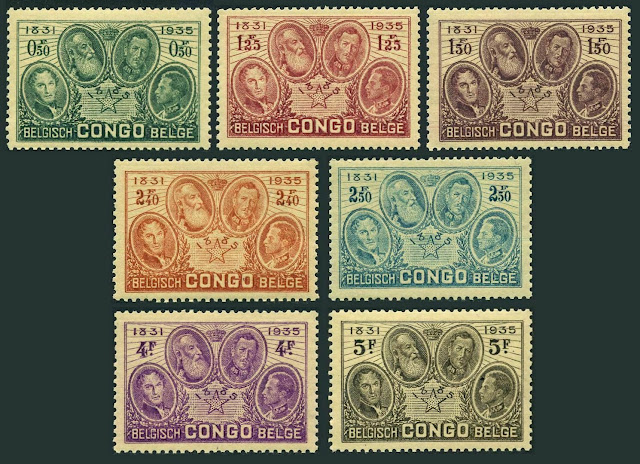1646 – Born: Gottfried Wilhelm Leibniz, German mathematician and philosopher (d. 1716)
Gottfried Wilhelm (von) Leibniz (sometimes spelled Leibnitz) or French: Godefroi Guillaume Leibnitz (1 July 1646 [O.S. 21 June] – 14 November 1716) was a prominent German (of Slavic origin) polymath and philosopher in the history of mathematics and the history of philosophy. His most notable accomplishment was conceiving the ideas of differential and integral calculus, independently of Isaac Newton's contemporaneous developments. Mathematical works have always favored Leibniz's notation as the conventional expression of calculus, while Newton's notation became unused. It was only in the 20th century that Leibniz's law of continuity and transcendental law of homogeneity found mathematical implementation (by means of non-standard analysis). He became one of the most prolific inventors in the field of mechanical calculators. While working on adding automatic multiplication and division to Pascal's calculator, he was the first to describe a pinwheel calculator in 1685 and invented the Leibniz wheel, used in the arithmometer, the first mass-produced mechanical calculator. He also refined the binary number system, which is the foundation of all digital computers.
Here are some stamps from Germany and Ukraine depicting Leibniz
1867 – The British North America Act of 1867 takes effect as the Province of Canada,
New Brunswick, and Nova Scotia join into confederation to create the modern nation of Canada.
Sir John A. Macdonald is sworn in as the first Prime Minister of Canada. This date is commemorated annually in Canada as Canada Day, a national holiday.
Here are the first Canadian stamps
1873 – Prince Edward Island joins into Canadian Confederation.
The first Prince Edward Island stamps
1878 – Canada joins the Universal Postal Union.
The Universal Postal Union (UPU, French: Union postale universelle), established by the Treaty of Bern of 1874, is a specialized agency of the United Nations (UN) that coordinates postal policies among member nations, in addition to the worldwide postal system. The UPU contains four bodies consisting of the Congress, the Council of Administration (CA), the Postal Operations Council (POC) and the International Bureau (IB). It also oversees the Telematics and Express Mail Service (EMS) cooperatives. Each member agrees to the same terms for conducting international postal duties. The UPU's headquarters are located in Bern, Switzerland.
The Universal Postal Union (UPU, French: Union postale universelle), established by the Treaty of Bern of 1874, is a specialized agency of the United Nations (UN) that coordinates postal policies among member nations, in addition to the worldwide postal system. The UPU contains four bodies consisting of the Congress, the Council of Administration (CA), the Postal Operations Council (POC) and the International Bureau (IB). It also oversees the Telematics and Express Mail Service (EMS) cooperatives. Each member agrees to the same terms for conducting international postal duties. The UPU's headquarters are located in Bern, Switzerland.
1885 – The Congo Free State is established by King Leopold II of Belgium.
The Congo Free State also known as the Independent State of the Congo (French: État indépendant du Congo, Dutch: Kongo-Vrijstaat) was a large state in Central Africa from 1885 to 1908. It was ruled personally by Leopold II and not by the government of Belgium, of which he was the constitutional monarch. Leopold II was able to procure the region by convincing other Eurasian states at the Berlin Conference that he was involved in humanitarian and philanthropic work and would not tax trade.
Via the International Association of the Congo, he was able to lay claim to most of the Congo basin. On 29 May 1885, i.e. after the closure of the Berlin Conference, the king announced that he planned to name his possessions "the Congo Free State", an appellation which was not yet used at the Berlin Conference and which officially replaced "International Association of the Congo" on 1 August 1885. The Congo Free State operated as a corporate state privately controlled by Leopold II. The state included the entire area of the present Democratic Republic of the Congo and existed from 1885 to 1908, when the government of Belgium reluctantly annexed the area.
1903 – Start of first Tour de France bicycle race.
The 1903 Tour de France was the first cycling race set up and sponsored by the newspaper L'Auto, ancestor of the current daily, L'Équipe. It ran from 1 to 19 July in six stages over 2,428 km (1,509 mi), and was won by Maurice Garin.
Here are some stamps from France, Luxembourg and the Isle of Man showing the Tour de France
The Congo Free State also known as the Independent State of the Congo (French: État indépendant du Congo, Dutch: Kongo-Vrijstaat) was a large state in Central Africa from 1885 to 1908. It was ruled personally by Leopold II and not by the government of Belgium, of which he was the constitutional monarch. Leopold II was able to procure the region by convincing other Eurasian states at the Berlin Conference that he was involved in humanitarian and philanthropic work and would not tax trade.
Via the International Association of the Congo, he was able to lay claim to most of the Congo basin. On 29 May 1885, i.e. after the closure of the Berlin Conference, the king announced that he planned to name his possessions "the Congo Free State", an appellation which was not yet used at the Berlin Conference and which officially replaced "International Association of the Congo" on 1 August 1885. The Congo Free State operated as a corporate state privately controlled by Leopold II. The state included the entire area of the present Democratic Republic of the Congo and existed from 1885 to 1908, when the government of Belgium reluctantly annexed the area.
1903 – Start of first Tour de France bicycle race.
The 1903 Tour de France was the first cycling race set up and sponsored by the newspaper L'Auto, ancestor of the current daily, L'Équipe. It ran from 1 to 19 July in six stages over 2,428 km (1,509 mi), and was won by Maurice Garin.
Here are some stamps from France, Luxembourg and the Isle of Man showing the Tour de France
1912 Died: Harriet Quimby, American pilot and screenwriter (b. 1875)
Harriet Quimby (May 11, 1875 – July 1, 1912) was an early American aviation pioneer and a movie screenwriter.
In 1911, she was awarded a U.S. pilot's certificate by the Aero Club of America, becoming the first woman to gain a pilot's license in the United States. In 1912, she became the first woman to fly across the English Channel. Although Quimby lived only to the age of 37, she influenced the role of women in aviation.
After earning her license, the "Dresden China Aviatrix" or "China Doll," as the press called her because of her petite stature and fair skin, moved to capitalize on her new notoriety. Pilots could earn as much as $1,000 per performance, and prize money for a race could go as high as $10,000 or more. Quimby joined the Moisant International Aviators, an exhibition team, and made her professional debut, earning $1,500, in a night flight over Staten Island before a crowd of almost 20,000 spectators.
As one of the country's few female pilots, she capitalized on her femininity by wearing trousers tucked into high lace boots accentuated by a plum-colored satin blouse, necklace, and antique bracelet. She drew crowds whenever she competed in cross-country meets and races. As part of the exhibition team, she showcased her talents around the United States and even went to Mexico City at the end of 1911 to participate in aviation activities held in honor of the inauguration of President Francisco Madero.
On July 1, 1912, she flew in the Third Annual Boston Aviation Meet at Squantum, Massachusetts. Although she had obtained her ACA certificate to be allowed to participate in ACA events, the Boston meet was an unsanctioned contest. Quimby flew out to Boston Light in Boston Harbor at about 3,000 feet, then returned and circled the airfield.
William A.P. Willard, the organizer of the event and father of the aviator Charles Willard, was a passenger in her brand-new two-seat Bleriot monoplane. At an altitude of 1,000 feet (300 m) the aircraft unexpectedly pitched forward for reasons still unknown. Both Willard and Quimby were ejected from their seats and fell to their deaths, while the plane "glided down and lodged itself in the mud".
1963 – ZIP codes are introduced for United States mail.
A ZIP Code is a postal code used by the United States Postal Service (USPS) in a system it introduced in 1963. The term ZIP is an acronym for Zone Improvement Plan;[1] it was chosen to suggest that the mail travels more efficiently and quickly (zipping along) when senders use the code in the postal address. The basic format consists of five digits. An extended ZIP+4 code was introduced in 1983 which includes the five digits of the ZIP Code, followed by a hyphen and four additional digits that reference a more specific location.
1990 – German reunification: East Germany accepts the Deutsche Mark as its currency, thus uniting the economies of East and West Germany.
The German reunification (German: Deutsche Wiedervereinigung) was the process in 1990 in which the German Democratic Republic (GDR, colloquially East Germany; German: Deutsche Demokratische Republik/DDR) became part of the Federal Republic of Germany (FRG, colloquially West Germany; German: Bundesrepublik Deutschland/BRD) to form the reunited nation of Germany, and when Berlin reunited into a single city, as provided by its then Grundgesetz (constitution) Article 23. The end of the unification process is officially referred to as German unity (German: Deutsche Einheit), celebrated on 3 October (German Unity Day) (German: Tag der deutschen Einheit). Following German reunification, Berlin was once again designated as the capital of united Germany.
A ZIP Code is a postal code used by the United States Postal Service (USPS) in a system it introduced in 1963. The term ZIP is an acronym for Zone Improvement Plan;[1] it was chosen to suggest that the mail travels more efficiently and quickly (zipping along) when senders use the code in the postal address. The basic format consists of five digits. An extended ZIP+4 code was introduced in 1983 which includes the five digits of the ZIP Code, followed by a hyphen and four additional digits that reference a more specific location.
1990 – German reunification: East Germany accepts the Deutsche Mark as its currency, thus uniting the economies of East and West Germany.
The German reunification (German: Deutsche Wiedervereinigung) was the process in 1990 in which the German Democratic Republic (GDR, colloquially East Germany; German: Deutsche Demokratische Republik/DDR) became part of the Federal Republic of Germany (FRG, colloquially West Germany; German: Bundesrepublik Deutschland/BRD) to form the reunited nation of Germany, and when Berlin reunited into a single city, as provided by its then Grundgesetz (constitution) Article 23. The end of the unification process is officially referred to as German unity (German: Deutsche Einheit), celebrated on 3 October (German Unity Day) (German: Tag der deutschen Einheit). Following German reunification, Berlin was once again designated as the capital of united Germany.
1997 – China resumes sovereignty over the city-state of Hong Kong, ending 156 years of British colonial rule. The handover ceremony is attended by British Prime Minister Tony Blair, Prince Charles of Wales, Chinese President Jiang Zemin, and U.S. Secretary of State Madeleine Albright.
2013 – Croatia becomes the 28th member of the European Union.
2013 – Croatia becomes the 28th member of the European Union.























